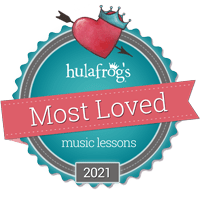Playing Music Empowers Child Development
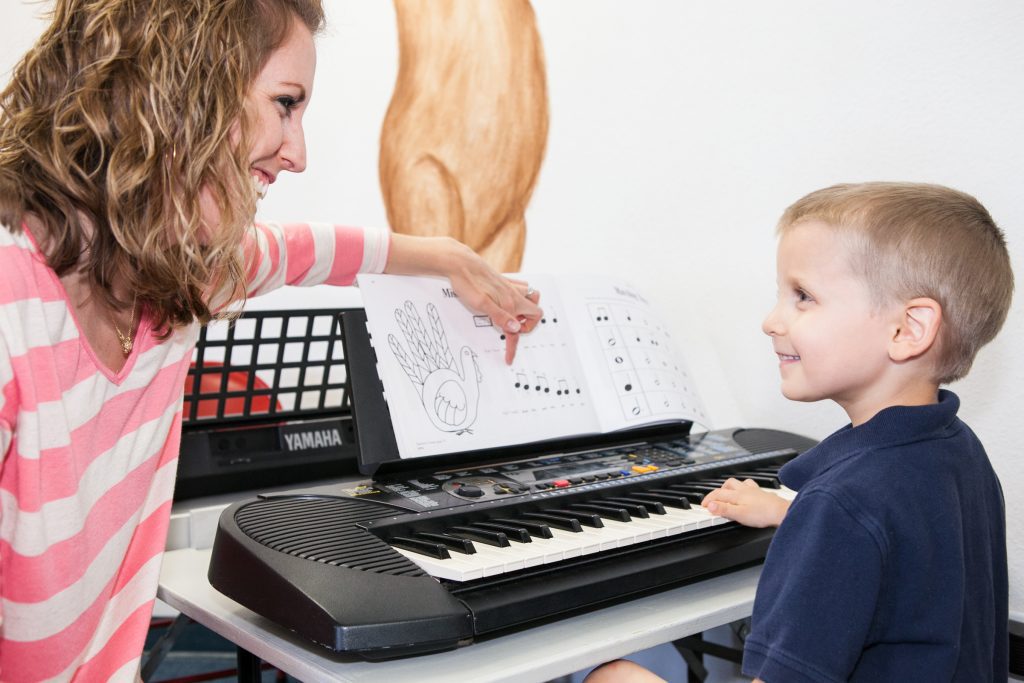
Music is an essential part of a young child's healthy development.
With a frequent exposure to music whether it’s singing or playing a musical instrument, your child acquires skills necessary to his or her daily life.
Discover some of the many ways music enriches your child's life and enhances their total development.
Music Helps Kids Move - A Primary Way That They Learn
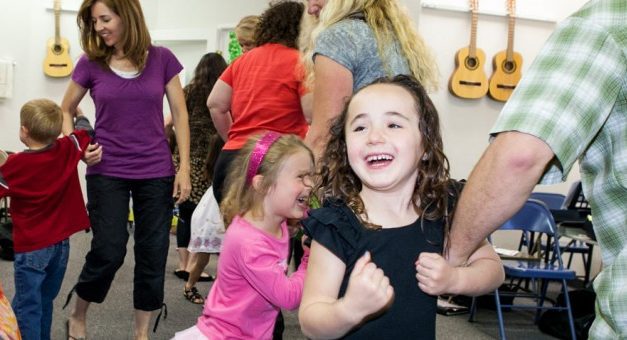
When kids sing, they don’t just open their mouths.
They also dance, clap their hands, bob their heads, tap their feet… Their bodies are just as involved as their lips.
According to Vanessa Durand, a pediatrician at Philadelphia’s St. Christopher’s Hospital for Children, the use of senses and freedom of movement give children a chance to meet the different milestones of their personal development.
They learn concepts through experience, trial and error, and exploration.
You observe what goes on in a kindergarten class, and you see everyone is moving - even the teacher. The purposeful movement offers an opportunity for work and play, which are essential for authentic learning. They use all of their senses.
Music offers all of these opportunities.
As children sing along and dance along, they become active learners. There are songs about direction, clapping and tapping, counting with their fingers, and so on.
Music makes it easier, more enjoyable, and more effective for children to learn new things!
Children Develop Better From Music Than Books
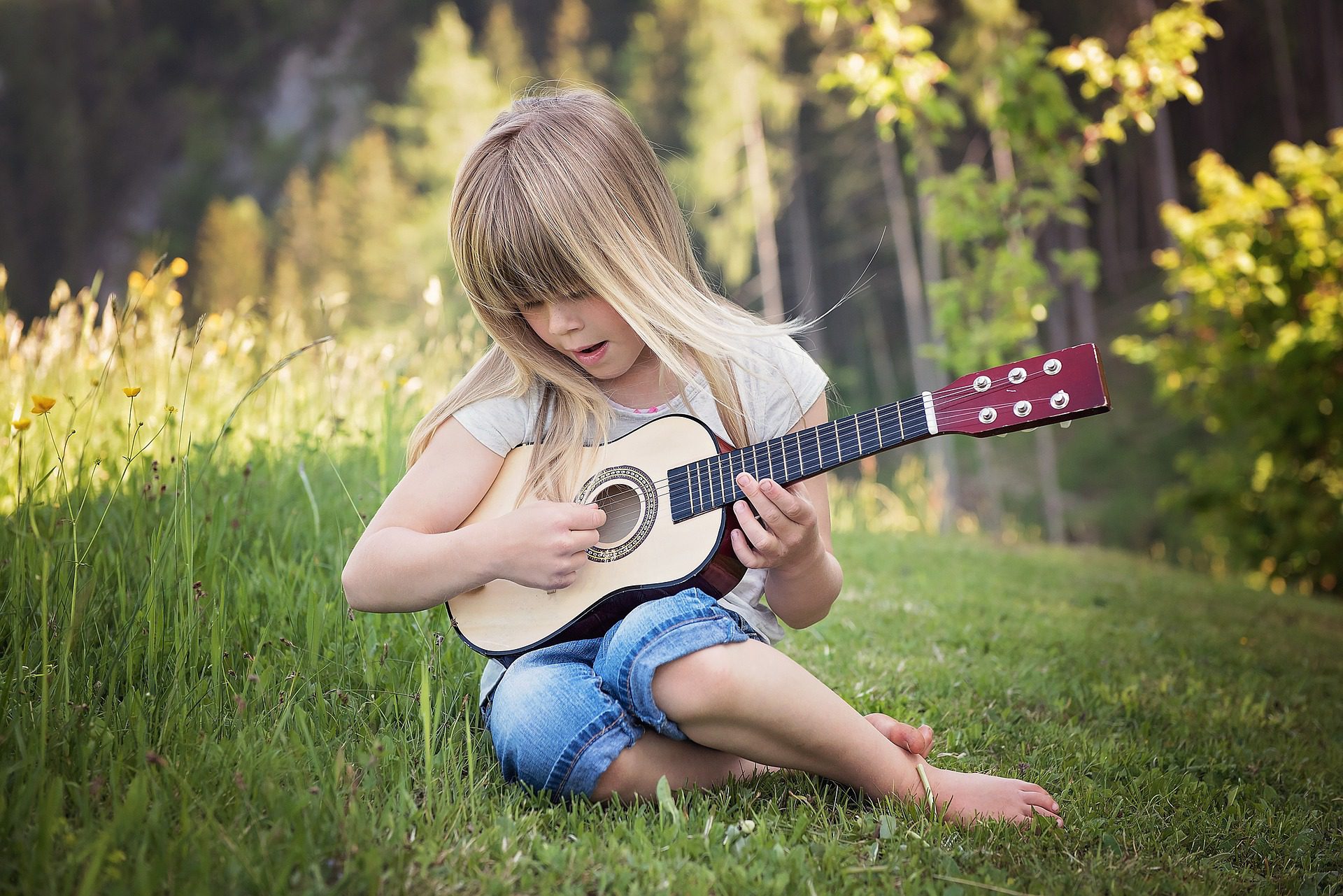
Shared reading benefits your child’s development, but did you know that playing music offers more than reading together does?
More than merely having fun, music participation helps to improve social skills, retain attention and focus, and enhance numeracy and literacy skills among young children.
Margaret Barrett, University of Queensland’s Head of the School of Music, conducted research on the impact of music on a child’s development. She worked with families and asked them to document how music affects their children’s lives. The focus was more on the regular scenario at home each time music was involved.
Quite interestingly, the study has shown a much stronger numeracy and vocabulary skills among children who frequently had music activities with their parents.
This is why informal music training in children as young as two to three years of age is important in supporting their social and cognitive development.
It develops a child’s interpersonal intelligence, or that ability to connect with others. When they sing along with others, they become a part of a bigger whole.
Kids Make Sense and Describe Their World Through Music
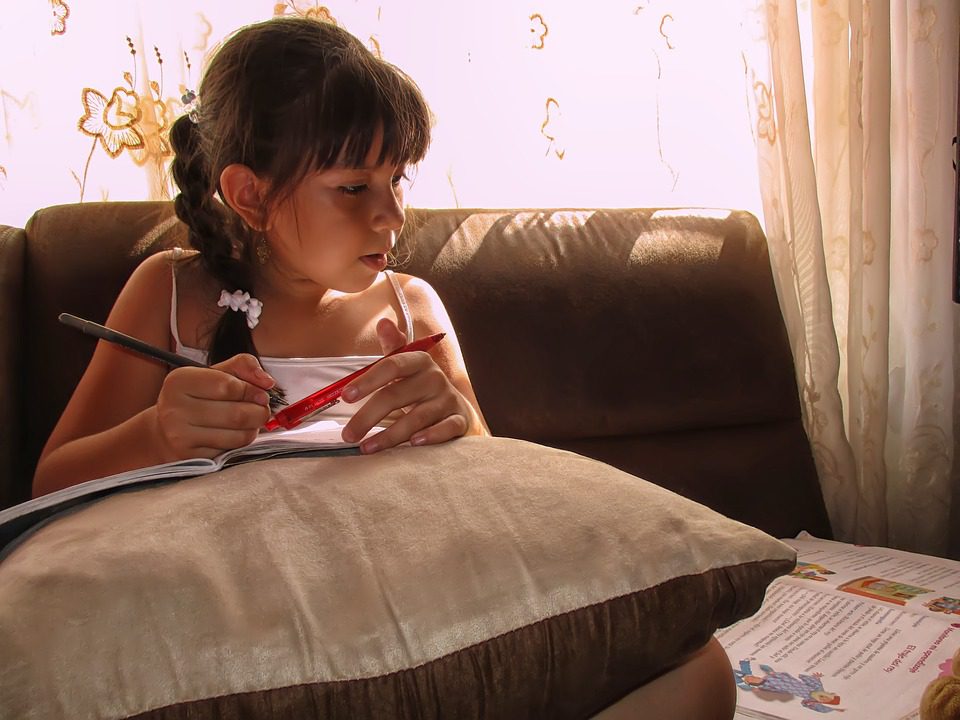
Ever heard your four-year-old singing something random, perhaps a made-up song about everyday things like getting some milk in the fridge or how much she loves her sister?
It’s easy to just assume your little one’s being silly, but she’s actually expressing herself through music!
This is an essential skill young children need to develop, the ability to express themselves is crucial to learning. In fact, spontaneous singing helps children development language and refine their speech.
Expressing how they feel through the words of a song they invent, or perhaps a soulful playing of the toy piano… These all help in ascertaining who they are in this world. They are making sense of things they are experiencing, which eventually extends into making sense of the world as they see it.
The dance steps they make up, no matter how silly (but so super cute!) these may seem, are their way of freely expressing what's inside of them. This is something parents should encourage their children to do - to openly share their feelings and thoughts.
This is how you help develop your child’s intrapersonal skills essential for promoting optimism, creativity, independence, charisma, and confidence in every individual.
So when you hear your little one sing or dance spontaneously, encourage her to do it more often. Join her in the singing, dance with her, play music with her.
Make Music a Part of Your Child’s Daily Life
Music is a universal language that everyone can speak fluently.
No matter what your culture is, no matter where you came from, whether you can speak clearly or not, these things don’t matter at all in music.
It connects people, draws them closer to their very heart and soul, stimulates creativity, encourages self-knowledge, and promotes learning in a fun and enjoyable way.
As you listen and create music, so many things happen all at once. It is life-changing, life-giving, empowering, and transcending - a beautiful gift that every child should receive during the early years of life.

